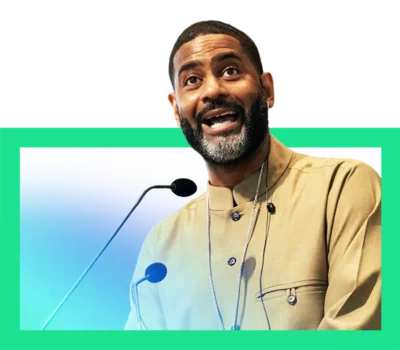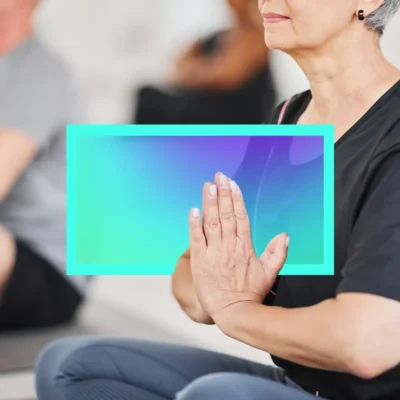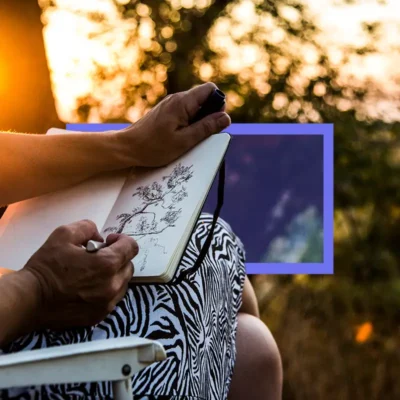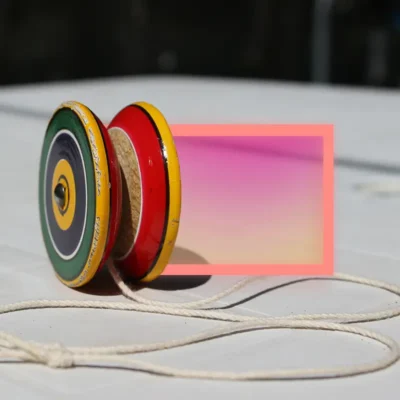Finding unity, through our difference
As Senior Pastor of Trinity United Church of Christ in Chicago, Otis Moss carries the torch for generations of church and civil rights leaders, including his own father, a regional director in the SCLC, and a friend of Dr. Martin Luther King. But it is his late sister Daphne whose influence most impacts his ministry and social advocacy. A brilliant young woman who struggled with schizophrenia, Daphne introduced a young Otis to what he calls “the continuum” – a spirituality born of poetry, literature and jazz that has woven its way through our history. Drawing as much from the beats of J Dilla as from the speeches of Dr. King; from the politics of Public Enemy as from the poetry of Langston Hughes; from John Coltrane and Miles Davis as from Reinhold Niebuhr and Abraham Joshua Heschel, Pastor Moss shares a timely, deeply personal story about the American jazz narrative — how a disparate and diverse people who are not supposed to make music together do – and do so beautifully. Photo credit: Sarah Yenesel.
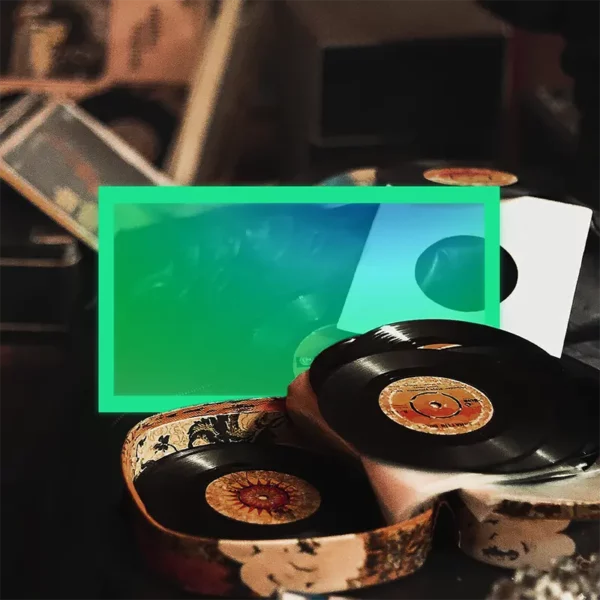
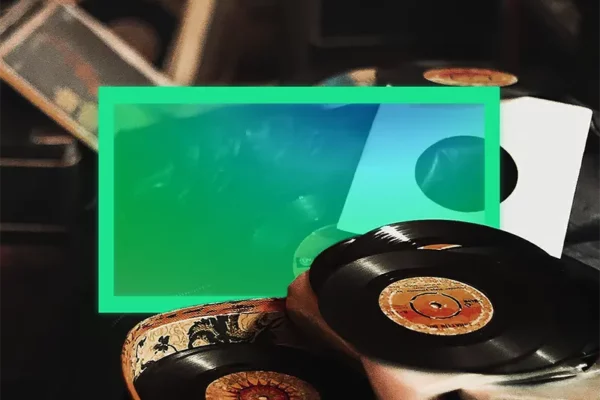
Table of Contents:
Transcript:
Finding unity, through our difference
REV. DR. OTIS MOSS III: Throughout history nations have called upon their poets in times of great need. That’s what the prophets were: poets. And right now this church – indeed, the nation – is in trouble. I draw from deep within to address the congregation, from the narrative Daphne helped me develop – from the gospels, jazz, poetry, film, and hip hop.
ROHAN GUNATILLAKE: Otis Moss III is Senior Pastor of Chicago’s iconic Trinity United Church. He has spent the last two decades practicing and preaching a Black theology that unapologetically calls attention to the problems of systemic racism in America. In this deeply personal Meditative Story, Pastor Moss articulates a spirituality that has been weaving its way through American history – and in particular, American jazz – about disparate and diverse people who are not supposed to make beautiful music together, but who do. It’s been a very difficult time in recent weeks and we hope that Pastor Moss’s Meditative Story can breathe a bit of renewal in your day, and offer a new way of seeing the times we’re living through.
In this series, we combine immersive first-person stories and breathtaking music with the science-backed benefits of mindfulness practice. From WaitWhat and Thrive Global, this is Meditative Story. I’m Rohan, and I’ll be your guide.
The body relaxed. The body breathing. Your senses open. Your mind open. Meeting the world.
MOSS: Through the wall I hear Daphne snapping her fingers – snap snap. Behind the snaps, I hear Al Jarreau’s silky voice. I so badly want to be able to snap that loud. Our rooms are right next to each other. My bed is against the far wall. But everything from her side bleeds in.
Mom and dad are out of town tonight, and I can’t sleep. Daphne is nine years my senior. And there’s been a tornado warning here in Cleveland. My mind races with typical kid fears, so I head across the hall to her room, and stand in the doorway. I want her to read me a story.
Her room is bigger than mine, painted in a vibrant orange, with two beds. One of the beds is in a little nook I like to sleep in on nights like this.
“Okay, take the bed over there,” she says. “But if you want me to read you a story, I’m not gonna read you The Little Prince. I’ll read this, by Zora Neale Hurston. She’s got some great tales.” Daphne reaches for a book from the shelf. We settle in.
I love when Daphne reads to me. She does all the voices, acts it all out, expressive, emotive. When she’s done I ask for another.
Next she reads a poem, something she wrote, from one of the spiral notebooks on her shelf. Then Langston Hughes, Maya Angelou. James Baldwin. No kids stories.
I have no deep grasp of what’s being said – none whatsoever. But man, the sound of her voice and those words. The language takes hold of me, lodges deep inside, and eventually I fall asleep.
On some level, I know something is wrong. I’m a good observer, but a terrible interpreter. I hear Daphne whispering through the walls. It’s like she’s having a conversation but I can’t quite make it out. So I ask her, “Who you talking to? What’s going on?”
Daphne laughs it off, “Oh, sorry,” and it becomes our joke. Mostly I hear her at night, when I’m supposed to be asleep. But sometimes I catch her while she’s doing her hair in the bathroom. I tease her and say, “You’re talking to yourself.”
And as far as I’m concerned my big sister can walk on water. We’re so close. Our form of comedy is completely unspoken. I can just look at her, and we both fall out laughing because she knows what’s on my mind, especially in church.
In the Black church, there are people who catch the spirit. And there are those who act like they caught the spirit. Daphne looks at me one Sunday and says, “Now you know that ain’t real.” And we just shake with laughter.
GUNATILLAKE: It’s a lovely scene. Let’s imagine sitting in the row behind Otis and Daphne. The joy and playfulness of these two elevating our own body and mind.
MOSS: We hang out almost every Friday night. We have ice cream. It’s our thing. Chocolate chip, peppermint chocolate chip – anything with chocolate chips and chocolate.
Daphne never makes me feel like an annoyance. She’s always like, “Hey, come with me to the mall” or “Here, hold the wheel while I drive.” She’s the coolest.
Sometimes we’ll do a movie at the house. We don’t rent movies, and we’re the last family on the block to have cable. So we just have to watch whatever’s on, the movie of the week.
But sometimes we’ll head out to the mall to watch movies. Here she introduces me to Richard Pryor. We see “Silver Streak”, “Stir Crazy”, and even “Which Way is Up” – films I’m a little bit too young to watch, but Daphne hooks me up.
I’m starting to have some challenges at school, and at home. I’m always upset, always angry. My parents are concerned. They take me to a counselor, but I refuse to speak to her.
“The only way I will talk to you,” I tell her, “is if my sister is present.” The counselor has me draw a picture of the whole family to break the ice. And the way I draw my sister is just all these scribbly marks of confusion.
After our session the counselor comes out of her office and says, “Your son is fine. But I think your daughter may have some issues we’ll want to address.”
Daphne has her first major episode a few years after this.
I’m in sixth grade, peeking around the corner from the family room into the kitchen. My sister is screaming at the top of her lungs. My mother’s crying, and my father is trying to hug Daphne, saying it’s going to be alright, over and over again. And she just lights into him, physically. I’ve never seen my father like this. All the breath is out of him and he just sits down. It’s like something’s broken.
My parents put Daphne into a hospital for treatment, where she is diagnosed with paranoid schizophrenia. It’s the first of many institutions she will be in and out of from now on.
Over time, Daphne’s episodes become more and more frequent, and more severe. She takes experimental medications to temper them, and makes several attempts at suicide. She becomes a shell of who she was. Talking to Daphne on her meds is like talking to someone who’s half asleep.
I still talk to her like a little brother does. I keep it light. I just love her, no matter what. Unconditionally. If she’s having a moment – a break, as we call it – and returns for a time to the hospital, I just sit with her and keep her company. You wanna play chess? Okay, cool. There’s no judgment, no “I feel sorry for you.” Even when she’s truly at her lowest.
If my gift to her is a sense of normalcy, her gift to me is jazz.
Daphne loves jazz music. She keeps her records neatly organized. The Al Jarreau collection first. Then Spyro Gyra, Manhattan Transfer, Bob James, David Sanborn. From there it’s R&B, Micheal Jackson, funk. Minnie Riperton and smoothe Marvin Gaye. And then you have all of these kinds of funk bands: Parliament, Bootsy Collins, Sly and the Family Stone, and other disco-ish, groove records.
We’re listening to Al Jarreau in her room. I’m on the floor and Daphne’s explaining what he does with his voice. She closes her eyes and goes into another world. She starts that snapping. Syncopated, ambidextrous, both hands cracking away. She’s gone now. Completely immersed in the music.
I listen to the chords and hear the solos, the shifts and changes, the musicians really saying something. Communicating. Improvising. It’s exhilarating.
Soon enough I discover Coltrane and Miles and Monk on my own, each of them so radically different. Miles is tone, just romantic tone. Coltrane is always digging into the spirit, straining at something beyond our human vocabulary, grasping for the divine. While Monk is all angles and pauses and rests – his music isn’t the chords, it’s in between them.
I’m just overtaken with this towering jazz narrative.
Like Daphne, I go to a historically black college. My father did, too. But in my mind I’m following her more than him. I want to make her proud. All that she’s given me. All that she represents. I look up to her and want to follow in her footsteps.
As I sit in my classroom, at first I can’t understand why I have such a strong affinity for certain writers. Their words feel familiar, and stir something deep in my soul. I hear the line: “Ships at a distance have every man’s dream on them.” Ok, Zora Neale Hurston, I know that line. Or: “Love takes off the masks that we fear we cannot live without and know we cannot live within.” Yeah, I remember that. The Fire Next Time, James Baldwin.
I’ve been with my wife Monica since we were freshman in college. When she meets Daphne, she meets somebody who has tremendous difficulty communicating. Monica says, “I only know Daphne through you.” Once I get to college, the sister I once knew is gone.
Even so, Daphne still finds a way to write poetry, even in the midst of her horrific struggles and breaks, almost up until the end, when she takes her life. Daphne leaves us four days before I get married. I don’t want to talk about it. I don’t want to deal with it. It haunts me for years. It takes me a long time to come to grips with it.
After she dies I sit in her room and flip through her books, reading her notes in the margins, pouring over the lines that lit her up. I look through her books of poetry, the stuff she was working on, and I can see so clearly how it was inspired by this writer, or that musician. And then I can see so clearly how she inspired me. I am suddenly able to connect all of these writers that I had been introduced to by Daphne as part of a continuum. I realize that they don’t just connect me to her, but to the very essence of Black life, to our history and experience in America.
GUNATILLAKE: They seemed to be staring at the dark, but their eyes were watching God. It’s a line from one of Zora Neale Hurston’s novels.
MOSS: Nowhere is Daphne’s influence on me more evident than when I stand in the pulpit. I’m delivering my first message as Senior Pastor of Trinity United Church of Christ in Chicago. It’s packed. Two on a mule, as they say in the South.
The hall of worship in Trinity is shaped like a crescent, with elements of an African meeting house. No seat in the church is more than 75 feet from the pulpit. And I’m able to make contact with each parishioner, even though we seat over 2,500.
The choir loft is directly behind the pulpit. Along with the pastoral team and the musicians, the choir wears African garments, each member in a different robe. It creates a beautiful mosaic of color. To the left and to the right of the pulpit are stained glass windows with depictions of the biblical narrative with people of African descent, from Genesis up to the Gospels.
My predecessor has retired after 36 years of ministry, and our parishioners are worried. They want to know what the future of the church is going to look like. I am nervous, to say the least. The responsibility weighs heavy on me.
The entire nation pays attention to what I say right now. A member of our community is running to become the first black president of the United States. While he’s busy on the campaign trail, the spotlight shines brightly on us. Our church is accused of subversive political activity. Over the past 48 hours, my predecessor’s ministry has been defined and undermined by a two-second soundbite, taken out of context.
Throughout history nations have called upon their poets in times of great need. That’s what the prophets were: poets. And right now this church – indeed, the nation – is in trouble. I draw from deep within to address the congregation, from the narrative Daphne helped me construct – from the gospels, jazz, poetry, film and hip hop.
My father, a regional director in the Southern Christian Leadership Conference and friend of Dr. Martin Luther King Jr., preached from the traditional space of spirituals and hymns. But it is my sister who’s given me new language to play with in ways that are true to myself, bringing together seemingly disparate elements into one new message I will bring to the church.
Thanks to Daphne I’m as comfortable drawing from the golden age of Hip Hop with verses from J Dilla as I am drawing from the speeches of Dr. King. As comfortable drawing from the politics of Public Enemy as from the poetry of Langston Hughes. From improvisational masters John Coltrane and Miles Davis as from classical theologians like Reinhold Niebuhr and Abraham Heschel. I see my preaching as a kind of oral deejaying, remixing what I’ve been given to create something new.
My message this Sunday is on the lynching of Jesus – he was lynched because he upset the status quo. Because he was “too uppity”. He was a nonviolent revolutionary who dared challenge Rome and push back on the conservative theological leaders of the day. But what I’m really talking about is the lynching of the black imagination.
My job is to give people language, language that allows them to understand the world, interpret the world, clarify their pain, face their blues, and still allow them to be able to witness the gospel, in all of those things. I never know if my message will speak to people, touch them – but on this day, this message speaks to me.
When my wife graduated from Spelman, Maya Angelou was her commencement speaker. And she said something that I’ll never forget. “When you graduate and you walk into that interview, when you apply to be a graduate student for that PhD program, always know that you are not walking into that room alone. Next to you on your right will be Harriet Tubman whispering in your ear. To your left will be Sojourner Truth pressing you on. Behind you will be Ella Baker pushing you forward. In front of you will be your grandmothers and your great-grandmothers. People you’ve never met. Never think you’re going into the room by yourself. There’s a great cloud of witnesses with you wherever you go.”
Daphne is an ancestor now, and within the African tradition, your ancestors are always present. Daphne is always on my right when I’m writing. When I’m speaking, I’m always thinking about her poetic voice, about language, connection, communication — and not just in words, but through music. Because music is also a language. And the idea that language – whatever form it takes, even as protest – is vital, and has the ability, when it is used correctly, to lift, break chains, crack earth, and to give people a window where there was once, only a wall.
GUNATILLAKE: If Daphne is with Otis as he speaks this, who is with you as you listen? Who is the hero in your community, who in your life embodies openness, curiosity, aliveness of spirit? Invite them here.
MOSS: I believe America will only be saved by a jazz narrative. I truly believe that. Jazz tells us we have the right to our own particular cultural framework. Jazz tells us we can all play solos. That everybody has the right to play in the band. That saxophones can play with pianos and pianos with trap drum sets and no, you don’t need a bow to play bass. In a jazz narrative, combinations that may not appear to work on the surface will converge in beautiful, unexpected ways.
I receive a note from Perth, Australia, where 10,000 young people are shouting “Black Lives Matter.” That chant is being led by aboriginals from Australia. Someone sends me another picture in Syria of a graffiti artist who put George Floyd’s picture on the side of a bombed out building, under which it says, “Say no to racism.” Right now we’re witnessing the largest multi-racial gathering of people ever to take place. And not just here in the United States – people across the globe are recognizing black anguish.
I step out onto the streets in Bronzeville, a traditional African-American community in Chicago. The neighborhood is embodied by a bronze statue of a man holding a suitcase, symbolic of the Great Migration after the civil war, where people of African descent left the South to find a better life for what one writer calls “the warmth of other suns.” We march down to 51st Street to Hyde Park, near the University of Chicago.
I’m on one side of the street, marching with folks from my church. The street has two thoroughfares, one going north, the other south. There is a median with plants running in-between, which makes getting to the other side challenging.
I look out to the opposite side of the street, I see black people gathering prepared to lead the march. But behind them I see all these young white kids with skateboards and bikes. I see families. I see children with masks holding signs that say “white silence is destructive.” This march is led by people of African descent, but the majority of people here on this day are not people of color. And it is incredibly ecumenical: Baptist, Jewish, Buddhist, the Baha’i, Hindu. Latino, Methodist, Pentecostal, and Muslim. The Sikh and the sanctified, the queer and the Quaker. Even the Wiccans and the non-believers have joined the march. And we all desire what? What is the beat that we can all nod our heads to?
These protesters have been nurtured in a culture where pop music is the music that comes out of a continuum. It’s deeply connected to black religiosity, African culture, and African traditions, even more so than the music of Motown that was cleaned up in order for white audiences to be able to listen. Out on our streets we have people nodding their head to Kendrick Lamar. They’re saying “we gon’ be alright”. A whole generation of people are using this as an anthem.
During the Civil Rights Movement there was no multi-racial gathering like this. You had a small minority of people who said, “Hey, we’re going to go down there because we have to make this nation better.” But most people were saying, “Let’s just leave things the way they are.” But now it’s here. And the people shouting are young people. They have a jazz framework.
And I remember that evening I told my wife with a big smile, I said it loudly, I said “Now, this is jazz.” The ethic, the spirituality that has been weaving its way through our history, trying to breathe in America. The American jazz narrative of a people who are incredibly different and not supposed to play together, but who do. And who make such beautiful music.
This right here – yes, this – this is American’s jam session.
Rohan’s closing meditation
GUNATILLAKE: Mindfulness is a political act. It is taking a stand. Bringing into awareness our default, unconscious and often destructive patterns and doing the work to be better. Seeing our distracted mind, saying “enough”, and marching towards calm; shining attention onto negative thought patterns, saying “enough”, kindly but firmly and moving towards balance.
So if you’re sitting as you listen to this, let’s sit. If lying down, let’s lie. And if walking, let’s march. Feeling the contact of where your body meets the earth, drawing from its power. And even though you may be by yourself as you listen to this, know that you are not. There are thousands and thousands of people, of us, with you right now. Each of us in our own way oriented towards action and change. Each of us resonating with Pastor Moss’s words and stories in our own way, but resonating all the same. And here for our own reasons but all here together.
So do what you can to sense that, to sense that this is a shared experience. Because it is. Separated by time and space but also connected. And let’s sit, lie, march together. And let’s breathe together.
Breathing.
Breathing.
Breathing for those who can’t.
Breathing for those who couldn’t.
Breathing.
Pastor Moss’s story about his sister, I found it very moving. Having had my own family members struggle with mental illness, it brought up some difficult memories. Then his words of hope on what he’s seeing around the world and on his doorstep in this moment lit me up in a different way, both feelings authentic and contrasting and layered on top of each other in a delicious chord. What jazz is here for you?
Let’s finish by just knowing what is happening within us, however loud or quiet that may be
The jazz of a body/mind full of energy, and calm, and feelings which somehow all go together in this simple thing we call ‘how we’re doing?’
The last few weeks have been very painful for so many people, and you might count yourself amongst those for whom it’s been a ride. Thank you for doing us the great honor of spending some of your precious time and attention with us. Taking time to recharge is an act of self-kindness. So thank you on behalf of you. And go well.

